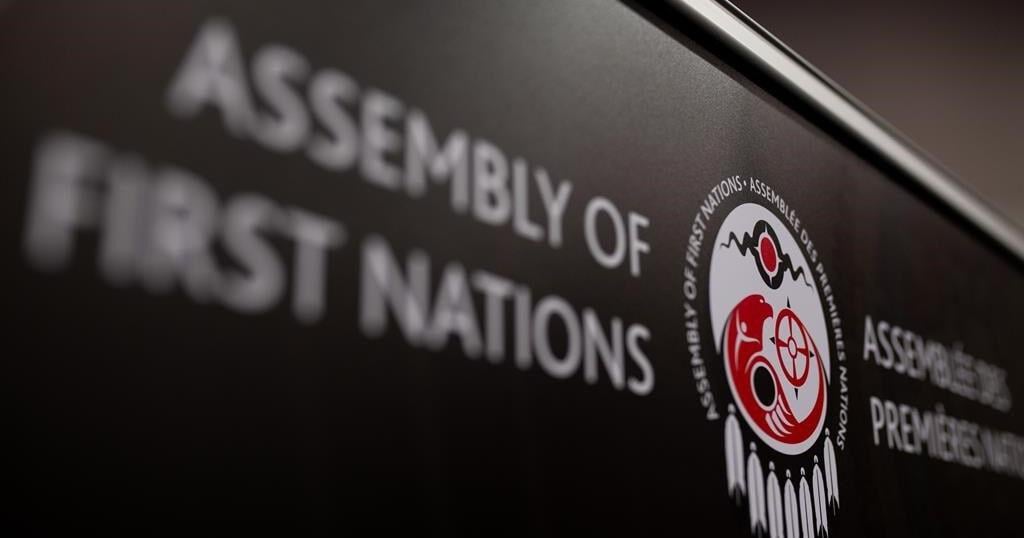OTTAWA – Three regional chiefs representing nearly half of First Nations say a national association is overstepping its mandate by making decisions that will directly affect children and families without consent.
They also accuse the Assembly of First Nations of attempting to sideline an organization partly responsible for realization of a $40-billion settlement to address the matter.
The chiefs, representing First Nations in Saskatchewan, British Columbia and Quebec-Labrador, said in a letter to the national chief that the organization is not being transparent in its negotiations for a final settlement agreement with Canada on First Nations child and family services.
Chiefs Bobby Cameron, Terry Teegee and Ghislain Picard also said in the letter that the AFN’s legal counsel are attempting to exclude the First Nations Child and Family Caring Society from the process altogether.
The two organizations jointly launched a human-rights complaint about Ottawa’s chronic underfunding of on-reserve child welfare services.
Half of the settlement money was earmarked for long-term reforms to the child welfare system across Canada.
But the three chiefs told national chief Cindy Woodhouse Nepinak in their letter that the AFN has not shared details with First Nations outside of Ontario.
The Assembly of First Nations represents some 630 First Nations chiefs across Canada, including Cameron, Teegee and Picard. Largely funded by Ottawa, the assembly helps with federal efforts to consult on legislation that could affect First Nations, and advocates on behalf of chiefs based on resolutions passed at their meetings.
Cameron, Teegee and Picard said the assembly has refused to call meetings on the negotiations since February, and it has imposed terms of reference that interfere with an independent expert advisory committee responsible for developing and implementing a work plan to reform Indigenous Services Canada.
As a result, they said, Canada is now only prepared to fund the advisory committee for activities the assembly authorizes.
The federal government did not immediately respond to questions about the matter.
The chiefs are calling on the AFN to respect the free, prior and informed consent of First Nations by including regional representation in negotiations, and to immediately disclose the draft final settlement agreement, the status of the negotiations and all supporting materials to First Nations.
They also call for the AFN to support the First Nations Child and Family Caring Society’s work.
In a letter of response to the three chiefs, Woodhouse Nepinak called a number of their claims inaccurate, and said while they may disagree with how negotiations have been unfolding, attacking employees and legal counsel “is not helpful.”
“The last-minute attempt by your offices to disrupt this initiative is not consistent with the AFN’s overall mandate,” she wrote.
“The final settlement agreement will be put before the First Nations chiefs across Canada, who will decide whether the suite of suggested reforms is acceptable.”
Woodhouse Nepinak wrote that negotiations are “fluid and ever evolving,” and as they’re conducted under settlement privilege, it would be “irresponsible” to communicate on the matters before an agreement is reached.
She added that while the assembly appreciates that the regional chiefs fully support the Caring Society, the assembly cannot “delegate” responsibility to an “organization that does not have accountability to First Nations.”
Cindy Blackstock, who heads the Caring Society, said in an interview Monday that she and her organization operate on resolutions passed by chiefs in the assembly, and that the concerns raised in the letter from chiefs are “worth listening to.”
“I believe in transparency. I believe in listening to people on the ground who are actually doing the work,” she said.
“And I really, strongly believe in First Nations having the information they need to make a free, prior and informed consent on anything that we’re doing nationally.”
As for the tension between the Caring Society and the Assembly of First Nations, Blackstock said it was “regrettable.”
This report by The Canadian Press was first published June 24, 2024.
